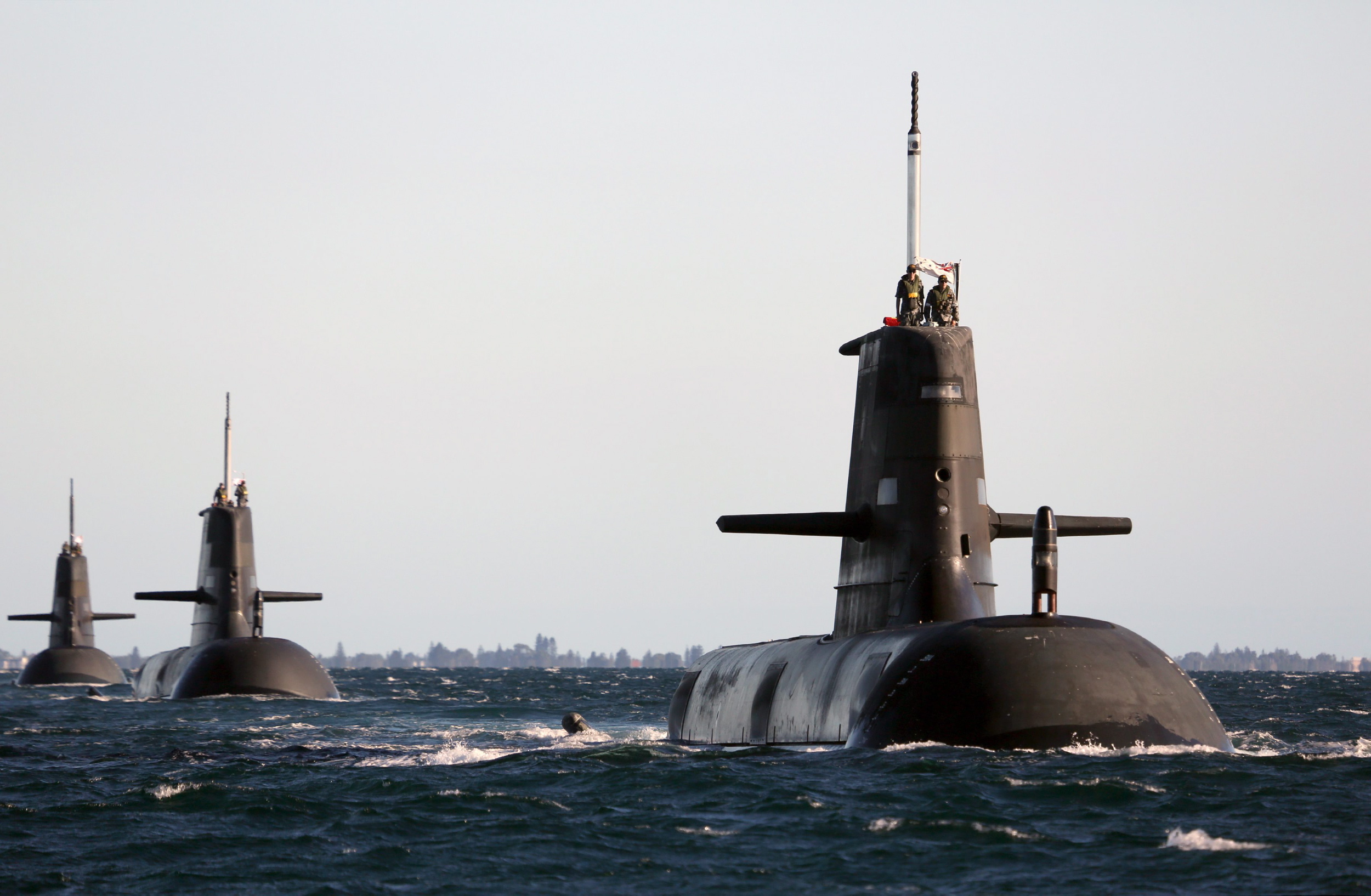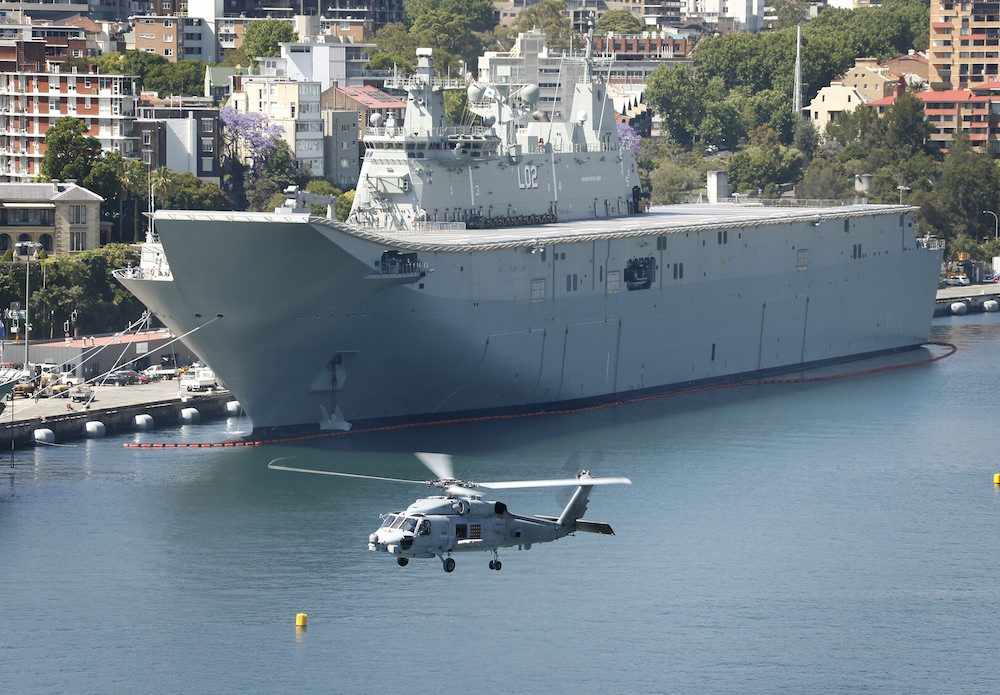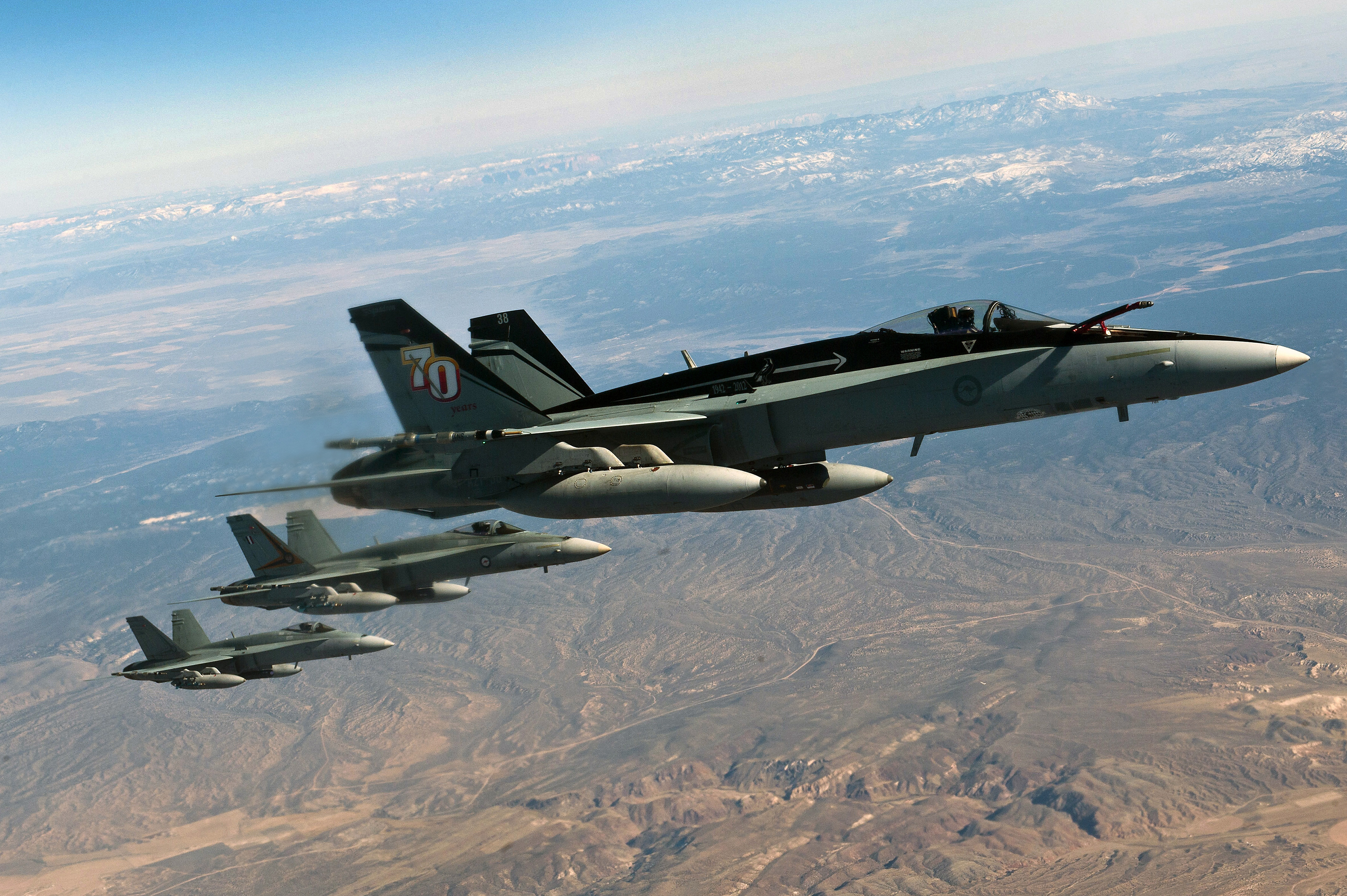
New submarines, frigates and offshore patrol vessels will be at the top of Australia’s list to modernize its military capabilities, its former defense minister told the Heritage Foundation on Tuesday.
Kevin Andrews, speaking at the Washington, D.C., think-tank, said the decisions made by the Liberal Democratic Party to increase defense spending to 2 percent of its gross domestic product over time, and creating a 10-year investment plan show that Australia “is taking a long view” to its security needs of deterring attack and cooperating with other nations farther afield.
Because Asia is Australia’s major trading partner, that “determines our security interests.”
He said that Australia soon will choose its new class of submarines from bids made by Germany, France and Japan. “There is no such thing as an off-the-shelf submarine.” He added that such a decision of a large weapon system will be implemented over the next 10 years, and those submarines will be part of the Australian fleet for 20 years after that.
These steps by the Canberra government come when other nations in the Indo-Pacific region are also modernizing their forces, most noticeably China. Andrews said China has the largest naval and air forces in the region and is expanding its capabilities in cyber and space.
“Australia must keep apace.”

An increasingly nationalistic China maintains that most of the East China and South China seas are its territory. It is demonstrating this in creating artificial islands from coral reefs, building and deploying coast guard vessels—larger than U.S. destroyers—and the emphasis seen in its most recent defense and security White Paper on creating an ambitious maritime force.
Two American “destroyers are hardly a threat to China” transiting waters near some of these artificial islands, he said. Andrews noted that Australia also sends naval vessels through those waters, which are also claimed by the Philippines, Taiwan, Vietnam and Indonesia. Also like the United States, it flies aircraft over these disputed territories and has been doing that for 30 years to monitor the Malacca Straits.
“It’s in China’s interest that freedom of navigation is maintained” and that claims to the reefs and islands in these waters be peacefully negotiated.
Andrews said that about 2,500 American Marine participated in military exercises in northern Australia last year and that the number of Marines will increase in the future as part of the Darwin Agreement between the two nations. He added the naval wharf at Darwin is being expanded to accommodate larger vessels.
“We have a good relationship with Japan,” he said in both trade and security interests and exercise with Tokyo’s forces and sometimes with U.S. participation. Although relations with India “had fallen on a rocky pathway” under a Labor government, ties are improving with Delhi. He also cited strong relations with Singapore, Indonesia and Malaysia.

Looking at the Middle East, Andrews said Australia was second only to the United States in its support of the Iraqi government in its struggle with the Islamic State. He noted there were 900 Australian military forces in Iraq training its regular and special forces, as well as flying air missions. Australia contributes six F/A-18 Hornets and Super Hornets to air strikes in Iraq and Syria, as well as a refueler and an air control aircraft. But he estimated two-thirds of the Australian air missions return to base without dropping ordnance because targeting information is inadequate.
As for how the fight with the Islamic State is going, he said, “Retaking Ramadi pales in comparison to retaking Mosul or Raqqa.” Mosul is the second largest city in Iraq; Raqqa, in Syria, is the proclaimed capital of the Islamic State. Ramadi is the capital of Iraq’s Anbar Province.
Andrews noted that Australia and other countries in the Indo-Pacific are concerned about the rise of Islamic extremism in the region. He cited recent a recent terror attack in Jakarta that left eight dead, the release of terror suspects from Indonesian confinement, the return of foreign fighters from Iraq and Syria and the continuing insurgency in the southern Philippines as events that are being closely monitored by Canberra and other Pacific nations.





